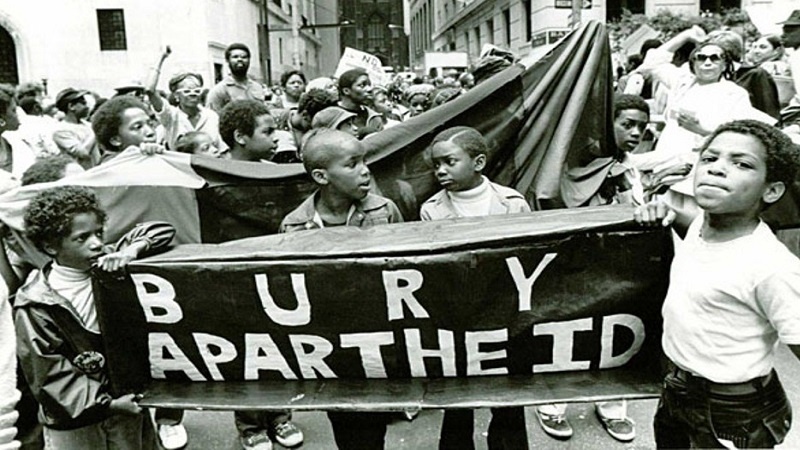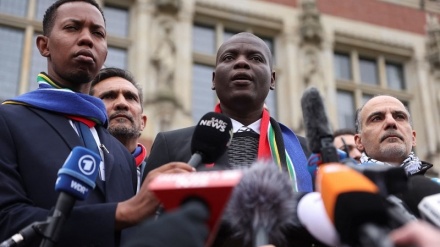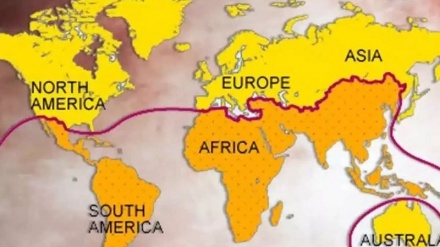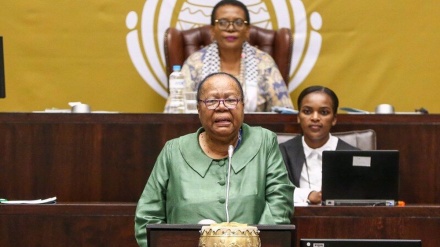Marking anniversary of end of Apartheid in South Africa
June 30 is one of the important anniversaries in contemporary world history. It reminds us of the official end of the inhuman policy of Apartheid in South Africa in 1991. On this day, apartheid which is one of the brutal forms of racial discrimination and was enforced for decades by the white-skinned minority regime on the country’s overwhelming black-skinned majority, was officially abolished.
Apartheid in the Afrikaner language means "separation" and was a system of racial, religious, social, political, cultural, sports, and all kinds of separation that reduced the black and coloured people to second and third class levels. In other words, apartheid deprived them of all political rights, educational opportunities and progress. It also meant that the white minority regime of South Africa only maintained diplomatic, scientific, cultural and sports relations with European countries and the US, Canada, Australia and New Zealand. It did keep any contact with the rest of the world on the basis of ethnic and colour differences.
Though the European rulers of South Africa followed racist policies against the non-white majority from the moment they settled in this land in the mid-seventeenth century, it was in 1948, with the coming to power of the National Party, this racist policy became legalized as "apartheid." As a result, since 1953 the people started their campaign against the regime, and braved arrest, torture, imprisonment and death. They, however, did not lose heart, and continued their struggle under some celebrated leaders, such as Nelson Mandela, who finally led them to victory in the face of heavy odds, in a country where there were separate schools for children for white and blacks, as well as segregated markets and economy.
On 30 November 1973, the UN General Assembly passed Resolution 3068 of the International Convention for the Prohibition and Punishment of the Crime of Apartheid and considered it an international offense. The isolated South African was the target of criticism, although he US, Canada, Australia, Britain, and some other European countries closely supported the Apartheid regime.
Gradually the regime started feeling international pressures when world countries called for abolition of this inhuman policy, and following the release of Nelson Mandela from 27 years of imprisonment, the Apartheid system collapsed on June 30, 1991. In December 1993, a new constitution was adopted by the South African Parliament on the basis of equality for all – whether blacks, coloured, or whites. In the first presidential elections with participation of the blacks in April 1994, Nelson Mandela was elected as president of South Africa – the first black person in its history. He started reforms and the democratization process, undeterred by the plots of big powers, especially the US and Britain.
Sadly, today a new apartheid era has begun in several lands, chiefly in the Zionist usurped land of Palestine, where with the backing of the US, Israel is indulging in the worst crimes against humanity. For example, it has built an apartheid wall in the West Bank to keep away the indigenous Palestinian people from the illegal settlements it has built for Jews coming in from different parts of the world.
The Palestinian Information Center, according to a report released in October 2016, stated that the Quds Occupying regime has constructed 505 Zionist settlements in various areas in the West Bank and nearly 93 Zionist settlements in the occupied Islamic city of Bayt al-Moqaddas. The Israelites prevent the Palestinians from building homes, and continue to bulldoze them.
In 2018, in another instance of apartheid in Occupied Palestine, the Knesset passed a racist law containing 15 clauses and depriving the indigenous people of their birthrights, in violation of UN resolutions, by ruling that Jews anywhere in the world are considered a single nation, with every right to settle in Israel, while the Palestinians driven out from their ancestral homes, have no right to return. Another clause has made Hebrew the official language and imposed it upon the Palestinian Arabs, despite the fact that more than half the population speaks Arabic as the mother tongue.
Tel Aviv's racist policies and actions against the Palestinians have been criticized by Nkosi Zwelivelile Mandela, the grandson of the late South African president, Nelson Mandela. He says the repressive regime in Israel is "worse" than the former apartheid regime of South Africa. In a recent article published by the British daily Guardian, Mandela referring to the actions of the Israeli regime against the Palestinians, wrote: "My country has long been freed from the rule of a racist minority, but the world has not got rid of the apartheid crime yet." He added: "There are horrifying similarities between Israel's racist laws and the former apartheid structure of South Africa."
Mandela further said: Tel Aviv's recent destruction of the Palestinian village of Khan al-Ahmar and expulsion of its residents is an example of the crimes of the Israeli apartheid regime. Mandela described the Israeli killing of Palestinian demonstrators in Gaza similar to massacres that were carried out in South Africa by the former white minority regime.
The fact is that while the world today does not support the political structures of racial discrimination and apartheid-based systems, the question that is now being asked by many people in the world is: Why Israel, with blind US support, is allowed to continue its racist politics? Does the international community not want to deal with this dirty phenomenon as it tacked apartheid a few decades ago?
In view of the success of the people of South Africa on June 30, 1991 in throwing into the dustbin of history the apartheid regime of the white-skined minority, it is time the international community confronts modern forms of apartheid all over the world, especially the racist and terroristic regime called Israel.
FK/AS/ME



